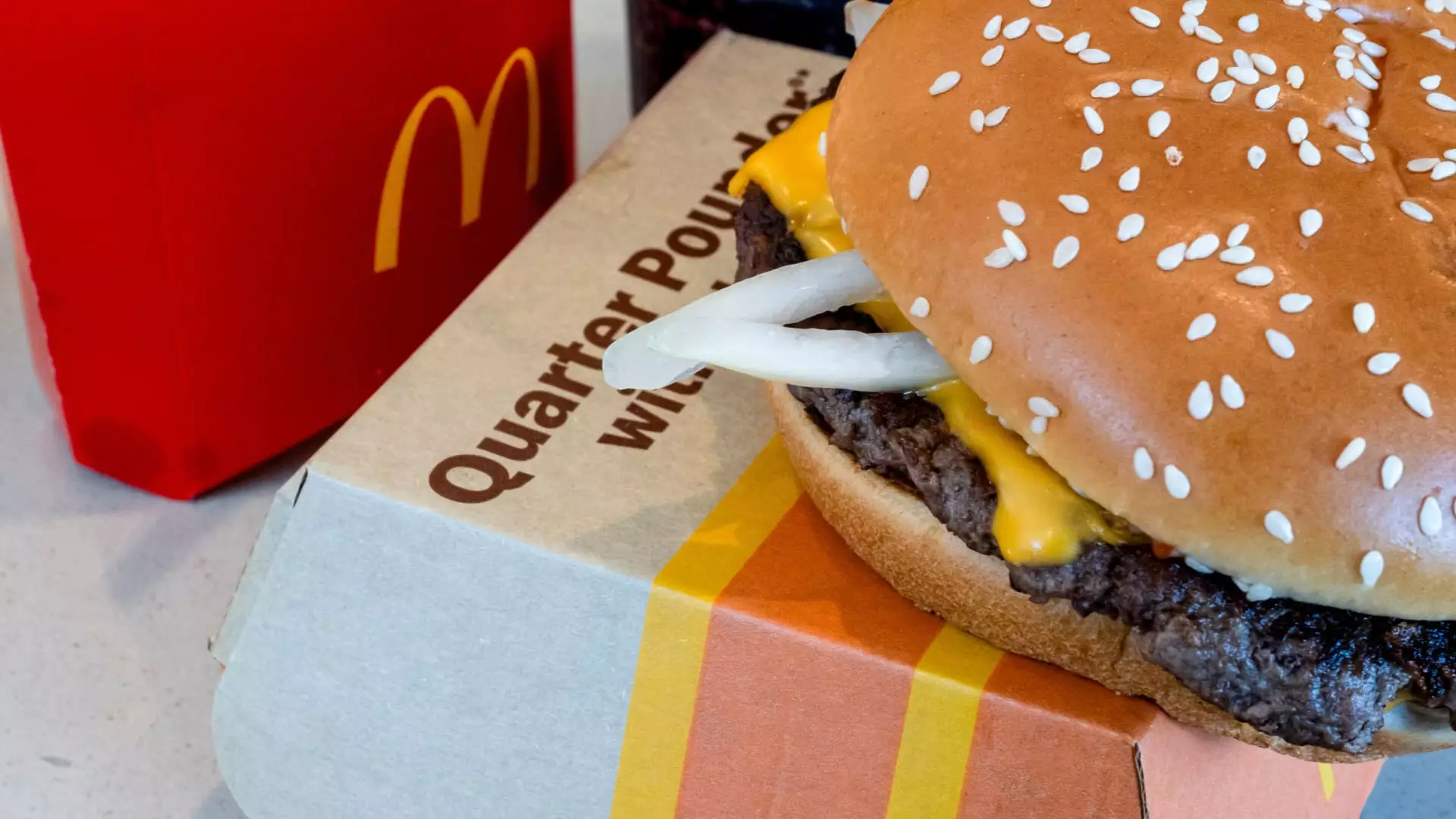The ongoing investigation into a deadly E. coli outbreak associated with McDonald’s famed Quarter Pounders has raised alarm across multiple states in the U.S. The Centers for Disease Control and Prevention (CDC) reported a concerning count of 75 confirmed cases across at least 13 states, accompanied by an unsettling rise in hospitalizations and one tragic fatality. As health authorities prioritize identifying the outbreak’s source, the reputation of one of the world’s most recognized fast-food chains hangs in the balance.
Statistics and Severity of the Outbreak
Among the afflicted, 22 individuals have required hospitalization, with at least two developing hemolytic uremic syndrome, a potentially life-threatening condition that can lead to acute kidney failure. The CDC’s findings indicate that the affected demographic spans a broad spectrum, ranging from young adolescents aged 13 to elderly individuals nearing 90. While the CDC’s investigation is ongoing, it cautions that the actual number of cases could be significantly higher than reported due to underdiagnosis; many individuals may not undergo testing and can recover without formal medical intervention.
The financial hit to McDonald’s was almost immediate as stock values dipped by 2% with reports of the outbreak, further compounding a 6% decline since the CDC’s initial announcement. Such developments not only evoke concerns among customers but also spell potential trouble for the fast-food giant’s sales, especially during a period that had already shown signs of consumer caution regarding dining out.
Targeted Ingredients Under Investigation
In the wake of the outbreak, the spotlight has turned to the slivered onions used in Quarter Pounders. Health officials allege that these onions could be a primary vector for the bacteria’s spread. As a precautionary measure, McDonald’s has directed its restaurants in affected regions—including Colorado, Kansas, and several others—to halt the use of these slivered onions and to pause the distribution of this ingredient altogether.
Their supplier, Taylor Farms, has subsequently issued a recall for four raw onion products upon discovering potential E. coli contamination. In an added layer of precaution, other fast-food chains such as Burger King, Pizza Hut, and KFC have also removed onions from select outlets to mitigate risk.
However, as investigations continue, federal agencies are widening their examination to include the beef patties used in the Quarter Pounder, indicating a methodical approach to identifying the outbreak’s root cause.
The outbreak has forced McDonald’s to take drastic actions, with a substantial portion of its U.S. restaurants, approximately 20%, ceasing Quarter Pounder sales temporarily. While the company has maintained that other menu offerings remain safe for consumption, the strategic withdrawal of a core menu item underscores the severity of the situation.
Amidst these challenges, McDonald’s isn’t merely facing a health crisis; it’s grappling with a precarious financial landscape. Reports suggest that sluggish U.S. sales had already been plaguing the chain prior to the outbreak, as consumers sought more value-oriented options. Analysts currently predict modest same-store sales growth of merely 0.5% for the upcoming third-quarter earnings—a stark statement on prevailing consumer attitudes.
Despite these challenges, industry experts indicate that barring an escalation into a broader crisis, McDonald’s brand reputation might sustain temporary damage rather than long-lasting harm. This mirrors previous outbreaks associated with major chains, including a notable case linked to Wendy’s. The short-term implications may seem severe; however, the fast-food sector is known for its ability to recover swiftly from such incidents through robust marketing, strategic operational shifts, and concerted efforts to reassure consumers of safety.
Looking forward, McDonald’s aims to restore consumer confidence with transparent communication about food safety and operational integrity. As the company prepares to disclose details regarding its financial performance in light of this outbreak, investors will keenly observe any shifts in customer traffic and sentiment in the wake of this public health incident.
As the CDC and health officials continue their investigation, it remains uncertain how deep the ramifications of this outbreak will run for McDonald’s and the broader fast-food industry. For now, the immediate priority for the chain is to navigate this turbulent period while maintaining its commitment to food safety and customer well-being.

